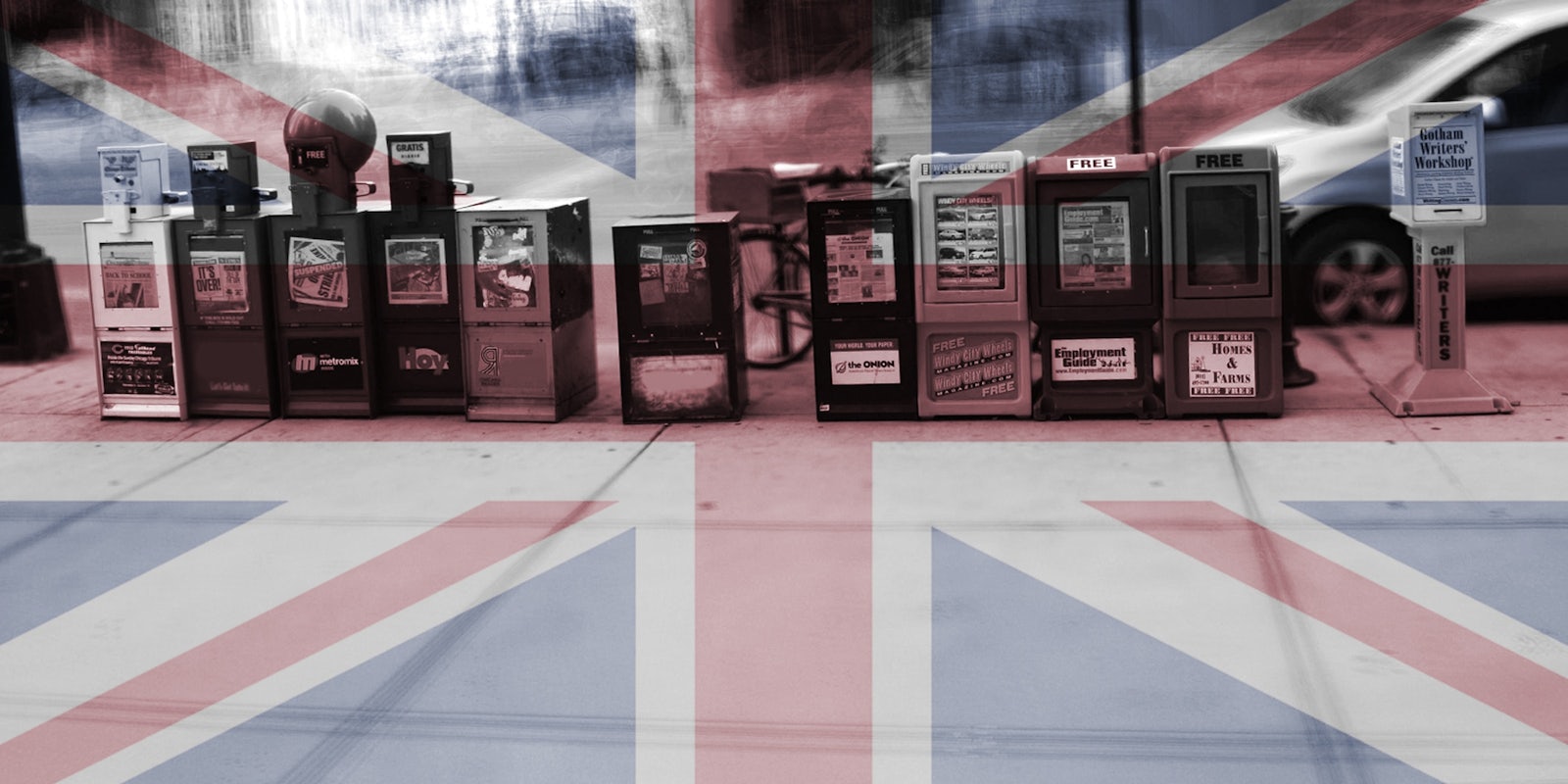When confidential police logs were leaked to the Sun newspaper detailing a late-night row between a British member of Parliament and police officers at the Prime Minister’s official residence, a media frenzy ensued and “Plebgate” was born. Three officers identified as responsible for the leak were subsequently fired.
Now the Metropolitan Police Service has revealed that during its investigation into the incident, known as Operation Alice, the telecom records of the Sun and its political editor Tom Newton Dunn were obtained using the Regulation of Investigatory Powers Act (RIPA), allowing police to circumvent judicial oversight.
RIPA, which was enacted by Parliament in 2000, was a response to the expanding use of online forms of communication and digital encryption. It regulates electronic eavesdropping by law enforcement and spy agencies, such as the Government Communication Headquarters (GCHQ).
The altercation at Downing Street, which took place on Sept. 19, 2012, involved several officers and Conservative MP Andrew Mitchell. While attempting to leave the grounds with his bicycle through the main gate, Mitchell was stopped by police and asked to use the pedestrian exit. An argument resulted.
According to the leak, Mitchell responded to the request by swearing at the officers: “Best you learn your fucking place.” Reportedly, he referred to them as “fucking plebs,” a derogatory term for the lower-class, hence the media-dubbed “Plebgate.” (“Gategate” continues to be used an alternative name for the scandal. Also: “Plodgate.” The term “plod” originates from a children’s series about an honest but dim-witted cop.)
Mitchell eventually admitted to disrespecting the officers but denied calling them plebs. He resigned publicly, one month after the incident, while standing beside Prime Minister David Cameron. Negative publicity, Mitchell said, had rendered him unable to continue to his public service.
The journalists’ phone records, obtained by police without the knowledge of the Sun or its employees, and without a court order, allowed the Met to identify the newspaper’s sources and expose them. The use of RIPA during Operation Alice was reportedly authorized by the police themselves.
The three officers, who were deemed responsible for the leak and subsequently laid off, were not prosecuted. It was determined, according to a statement by the Crown Prosecution Service (CPS), that a jury would likely find the disclosure in the public’s interest. CPS Director Alison Saunders further said there was “insufficient evidence to prosecute any suspect in relation to this leak.”
In February, another police officer, PC Keith Wallis, was sentenced to 12 months in prison after pleading guilty to providing a false account of the events. An apology was issued by the Met police commissioner to Mitchell for the officer’s transgression.
Alarmed that its communications were spied on without so much as a warrant, the Sun responded Wednesday by requesting that Interception of Communications Commissioner Lord Justice May disclose exactly how many times police have invoked RIPA to spy on members of the press.
BREAKING: Sun is writing to Lord Justice May to find out how many times police have gone to phone companies to seize journalists’ phone data
— lisa o’carroll (@lisaocarroll) September 2, 2014
“News UK and The Sun were surprised and concerned to learn of this intrusion, which we understand was authorised by a police officer rather than a judge, for the apparent purpose of exposing a whistleblower who was ultimately shown to have committed no criminal offence,” the Sun said in statement.
“We understand this was achieved, without our knowledge, by the use of police powers under the Regulation of Investigatory Powers Act. This circumvented the normal safeguards in the Police and Criminal Evidence Act, which was designed to give proper protection to journalists and their sources.”
At time of writing, Lord Justice May has yet to respond to the The Sun’s inquiry, but a related article by David Allen Green, a journalist and litigator of media practices, might offer a preview of what that answer might look like.
In the Financial Times, Green wrote: “Many commentators are outraged at this attack on the ability of a journalist to protect his or her sources. But the sad truth is that the police probably did not apply a great deal of thought to the making of the request. In 2013 alone there were 514,608 similar authorisations for RIPA requests by UK public authorities: put differently, it would seem there are about 10,000 such requests every week.”
The Sun declined a request for further comment.
H/T Press Gazette | Photo via Mike Warot/Flickr (CC BY 2.0) | Remix by Jason Reed


